
5 Key Factors That Impact Your EV Charging Speed
State of charge, battery temperature, active vehicle systems, battery health, and vehicle specifications all influence EV charging speeds. Here's how each factor affects your charging experience:
State of Charge (SoC) Your battery charges fastest when nearly empty. Like finding seats in an empty theater, electrons easily find space in a depleted battery. As the battery fills, charging naturally slows down.
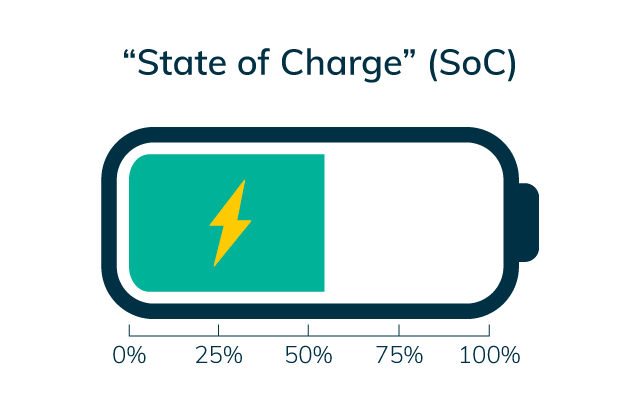
Battery state of charge indicator
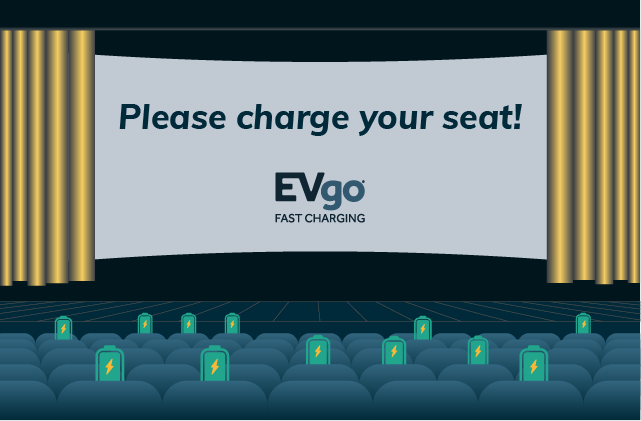
Movie theater with EV charging station
Battery Temperature Batteries perform best at moderate temperatures. The Battery Management System (BMS) monitors and controls charging speeds to protect battery life, slowing down in extreme hot or cold conditions.
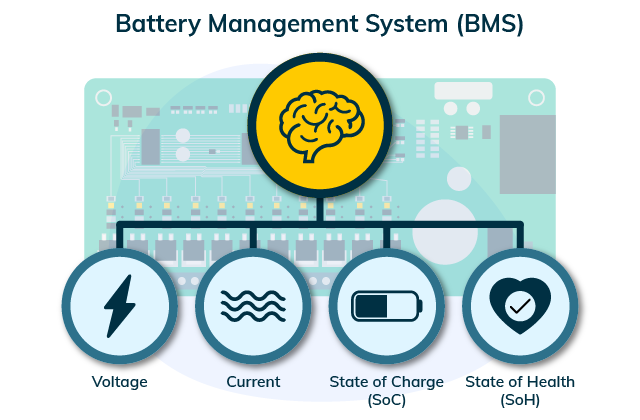
Battery management system circuit diagram
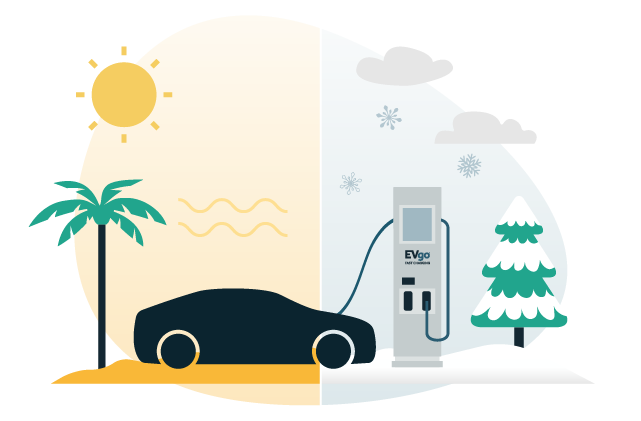
Car charging in different temperatures
Active Vehicle Systems Running accessories like AC, heating, lights, or radio while charging diverts power from the battery charging process, affecting overall charging speed.
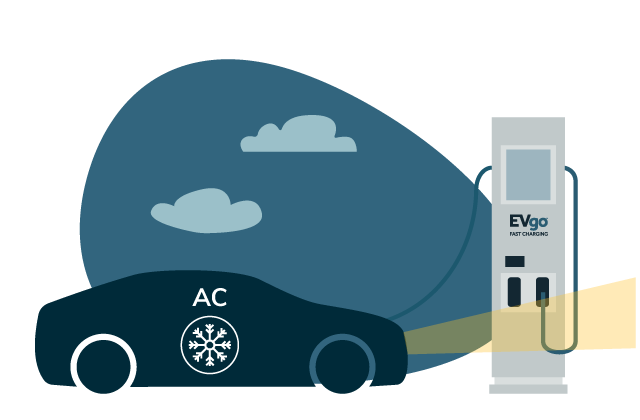
Electric car with cold weather icon
Battery Health Batteries naturally lose charging capacity over time. For optimal battery longevity, it's recommended to charge up to 80-85% during fast charging sessions.
Vehicle Specifications Power delivery (measured in kilowatts) depends on both voltage and current limits of your vehicle and the charger. These specifications determine maximum possible charging speeds.
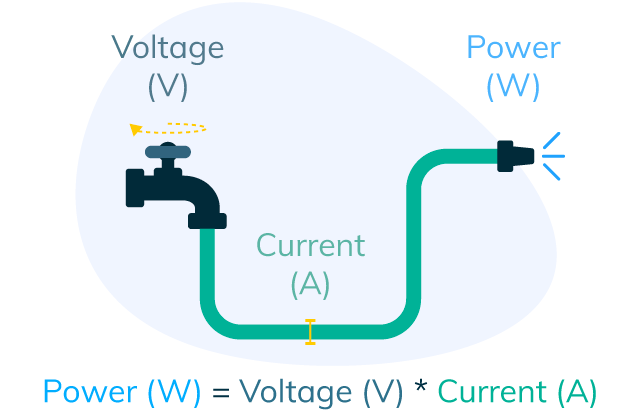
Power formula circuit diagram
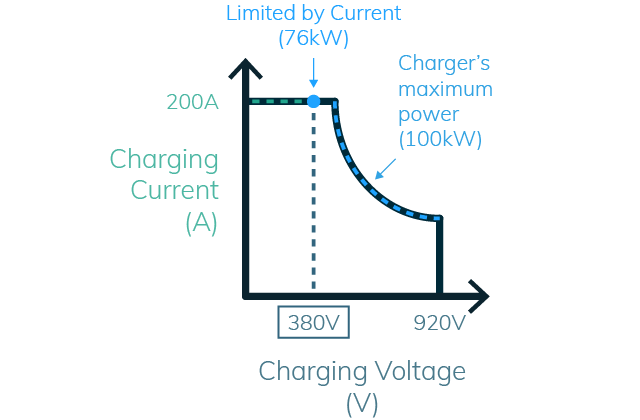
Current vs voltage charging comparison graph
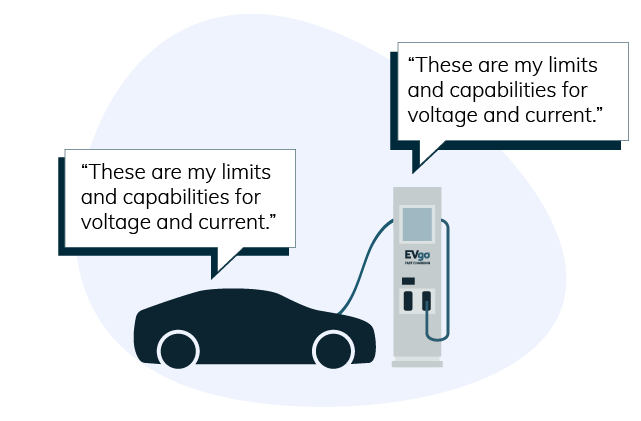
Electric car at charging station
Actual charging speeds typically fall below advertised maximums as your EV and charger work together to deliver the fastest safe charging rate while protecting battery health.

EVgo Fast Charging Benefits Infographic
